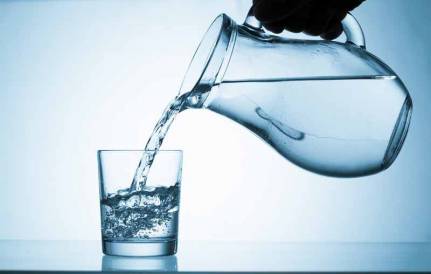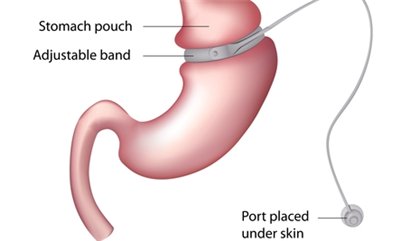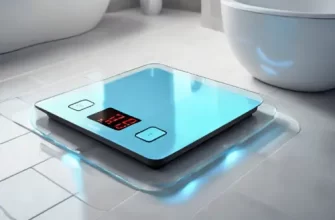Water is essential for our overall health and well-being, but did you know that it can also aid in weight loss? As we strive to shed those lingering pounds, it is crucial to understand the role of water in our weight loss journey. Water not only helps to regulate body temperature and flush out toxins, but it also plays a significant role in burning calories and boosting metabolism.
By staying hydrated, we can create an optimal environment for our bodies to function efficiently and effectively.
Benefits of Drinking Enough Water for Weight Loss
Ingesting an adequate amount of water not only ensures that you stay well-hydrated, but it can also assist in shedding pounds. Water contains no calories, making it an excellent option for quenching your thirst without contributing to weight gain. Furthermore, consuming water before meals can contribute to appetite control, leading to a sense of fullness and ultimately fewer calorie intake.
Moreover, maintaining adequate hydration levels aids in enhancing your metabolism. When your body is adequately hydrated, it can effectively burn calories and convert stored fat into usable energy. Furthermore, water plays a vital role in the process of digestion and nutrient absorption, allowing your body to efficiently break down food and extract vital nutrients.
Furthermore, staying properly hydrated aids in getting rid of detrimental substances from your body, resulting in enhanced functioning of organs and overall better health.
In order to enjoy these advantages, it is crucial to drink an appropriate quantity of water on a daily basis.
How Much Water Should You Drink Daily?
It is essential for our general health and well-being to consume a sufficient quantity of water on a daily basis. However, the specific quantity of water you ought to drink daily varies depending on several factors such as your weight, level of physical activity, and the climate in which you reside.
A typical rule of thumb is to strive for a minimum of eight 8-ounce glasses of water every day. Nevertheless, this advice might differ depending on personal requirements. A few health professionals propose drinking half of your body weight in fluid ounces of water. For instance, if you weigh 150 pounds, your goal would be to consume 75 ounces of water each day.
It’s important to note that this recommendation includes all fluids, not just pure water. Other hydrating options like herbal tea or infused water count towards your daily intake.
Remember that your body’s hydration needs can be influenced by various factors, such as exercise intensity and duration, medication use, and pregnancy.
How to Track Your Water Intake
Tracking your water intake is crucial to ensure you are drinking enough throughout the day. Fortunately, there are several simple methods you can use to keep track of how much water you consume.
One method you can use is to bring a water bottle that can be used multiple times and keep track of how many times you fill it up. Some water bottles have markings on them to indicate their volume, which can be very useful for monitoring your water intake. Another option is to use mobile apps or websites that let you record how much water you consume. These tools often offer reminders and charts to assist you in staying on top of your hydration goals.
Another option is to manually record the number of glasses or bottles of water consumed by using a classic pen and paper. By doing so, it becomes convenient to calculate the overall amount consumed at the conclusion of each day.
No matter which tracking method you opt for, it is important to be consistent. Develop a routine of accurately documenting your water consumption, and eventually, it will become a natural part of your daily life. By regularly monitoring your hydration levels, you will have a better understanding of whether you are consuming sufficient water for both weight loss and overall health.
Signs of Dehydration to Watch Out For
Dehydration occurs when the body loses more water than it takes in. It is essential to be aware of the signs and symptoms of dehydration to prevent it from becoming a health issue. Some common signs to watch out for include:
- Thirst: Feeling thirsty is an obvious indicator of dehydration. When your body lacks water, it sends signals to your brain, urging you to replenish the lost fluids.
- Dry Mouth: If you notice that your mouth feels unusually dry or sticky, it could be a sign that you need to drink more water.
- Fatigue and Lethargy: Dehydration can cause feelings of tiredness and low energy levels. Lack of bodily fluids affects the function of your cells and organs, leading to fatigue.
- Dark-Colored Urine: Monitoring the color of your urine can be a helpful indicator of hydration levels. Dark-colored urine suggests concentrated waste due to insufficient water intake.
- Headaches: Dehydration can trigger headaches and migraines in some individuals. These headaches can range from mild discomfort to severe pain.
- Dizziness and lightheadedness: A lack of water in the body can lead to dizziness, weakness, and lightheadedness when standing up or exerting oneself.
- Dry Skin: Dehydration affects the largest organ in our body – the skin. Without adequate hydration, the skin may appear dull, dry, and less elastic.
Recognizing these signs of dehydration is crucial in taking immediate action to rehydrate your body properly. By staying vigilant and keeping a close eye on these symptoms, you can maintain optimal hydration levels and support your weight loss goals effectively.
Tips to Stay Hydrated Throughout the Day
Maintaining proper hydration throughout the day is vital for overall well-being, yet it may be difficult at times to guarantee sufficient water intake. Here are a few suggestions to assist you in staying adequately hydrated.
- Carry a water bottle: Having a reusable water bottle with you at all times serves as a constant reminder to drink water and stay hydrated.
- Set reminders: Set alarms on your phone or computer at regular intervals to prompt you to drink water.
- Flavor your water: Enhance the taste of your water by adding fruits, herbs, or cucumbers, making hydration a more pleasant experience.
- Eat hydrating foods: Add fruits and vegetables like watermelon and cucumber, which have a high water content, to your meals.
- Drink before every meal: Develop the routine of consuming a glass of water prior to each meal, as it serves the dual purpose of keeping you hydrated and assisting in regulating your meal portions.
Does Drinking Cold Water Help You Lose Weight?
Drinking cold water has been a popular theory for weight loss. The idea is that when you consume chilled water, your body burns more calories to warm it up to your body’s temperature, leading to increased weight loss. However, the truth behind this claim is not as straightforward as it seems.
Although drinking cold water can indeed cause a small increase in the amount of calories burned, the impact is negligible. Studies indicate that consuming approximately eight cups of cold water daily can assist in burning an extra 50-100 calories. Nevertheless, this calorie burn alone is unlikely to result in notable weight loss.
Therefore, while drinking cold water may have some small benefits for weight loss, it should not be relied upon as a sole strategy. It is crucial to combine proper hydration with a balanced diet and regular exercise for sustainable weight loss. Remember, every small step counts towards reaching your health goals!
Common Misconceptions About Drinking Water for Weight Loss
One common misconception about drinking water for weight loss is that it can directly lead to significant weight loss on its own. While staying hydrated is crucial for overall health and can aid in weight loss efforts, it is not a magical solution for shedding pounds. In reality, water plays a supporting role in weight loss by promoting proper digestion, reducing appetite, and boosting metabolism.
Another misconception is that drinking water alone can replace the need for a healthy and balanced diet or regular exercise. While water is essential for overall health, it should be incorporated into a comprehensive weight loss plan that includes healthy eating habits and physical activity.
Additionally, some people believe that drinking excessive amounts of water can accelerate weight loss. However, consuming excessive amounts of water can actually strain the kidneys and disrupt electrolyte balance in the body.
Conclusion
Water is crucial for anyone trying to lose weight. Not only does it improve digestion and metabolism, but it also helps to control hunger and decrease calorie consumption. By knowing the appropriate daily water intake, people can effectively contribute to their weight loss objectives.
It is important to monitor and keep track of how much water you consume in order to guarantee that you are adequately hydrated. Various approaches, such as utilizing apps or bringing a water bottle with you, can assist in staying on top of this. Furthermore, it is vital to recognize the symptoms of dehydration and take preventive actions.
Although drinking cold water can temporarily increase metabolism, it is not a miraculous remedy for losing weight. It is crucial to debunk misconceptions about using water to aid in weight loss.
Overall, staying hydrated throughout the day is key to achieving optimal health and supporting weight loss efforts. By prioritizing water intake and being mindful of hydration needs, individuals can unlock the potential benefits that H2O has to offer in their weight loss journey.









